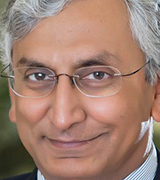 With the announcement of a National Dialysis Service, India is set to join the growing list of nations that provide free or highly subsidised treatment to patients with end-stage kidney failure.
With the announcement of a National Dialysis Service, India is set to join the growing list of nations that provide free or highly subsidised treatment to patients with end-stage kidney failure.
Dialysis is expensive—it consumes 2–6% of the healthcare expenditure [1], even though end stage kidney disease (ESKD) patients account for only 0.1–0.2% of the total population. Any proposed service must therefore be cost efficient. The proposed service focuses on haemodialysis (HD), while neglecting other options such as kidney transplantation, and peritoneal dialysis (PD), which is cheaper to the healthcare system and can be done at home, hence it is the preferred treatment modality for state-funded dialysis programmes [2].
Conservative estimates suggest that about 68,970 dialysis machines will be needed to treat 206,900 patients in the very first year, and the figure will rise to a staggering 1.4 to 2.2 million subjects [3].
A well designed national service should be a hybrid programme, with a pragmatic mix of HD and PD. PD would be the best way to start, since it does not require setting up an infrastructure. Global experience shows that small HD units are unviable, especially in remote locations [4]. HD units that allow efficiency and economies of scale should be developed in larger towns. Patients who need to travel long distances should be offered PD.
Dialysis consumables are expensive. In particular, the high costs of PD fluid bags is a scandal. There is no reason why they cannot be produced locally at a fraction of the current costs, as in countries like Mexico [5].
Considering how transformative a successful kidney transplant is for the patient, and the savings that accrue to the healthcare system, parallel support should be provided for transplant surgery and post-transplant immunosuppression. It would be a shame if patients refused transplant because they can’t afford it, whereas dialysis is available free.
A large number of ESKD patients, especially the elderly and those with multiple comorbidities, will not experience improvement in their quality or length of life with dialysis. A supportive or palliative care service should be developed for symptom relief and psychological support, as is done for cancer patients.
Clear and transparent prioritisation criteria will need to be developed for selecting which patients should receive state funded dialysis—as is done in Thailand [6] and South Africa [7].
India has about 1.2 nephrologists for every million people (pmp), which is well short of 10 to 30 pmp in developed countries. The gap will take at least 25 years to fill if Indian training programmes produce nephrologists at current rates. Equally worrisome is lack of trained nurses and technicians.
The terms of payment to the private dialysis provider need careful thought—will they be based on meeting requirements related to process alone, or will outcome parameters also be taken into consideration? Data from the existing public dialysis schemes suggests that despite the increase in coverage, dialysis quality remains uncertain, and survival is suboptimal [8]. It is important to not fall into a trap where the providers try to game the system by front loading—quoting high costs for machines but artificially low costs for the service, which is bound to compromise quality. The ideal payment model should be based on a combination of process and outcome measures. Also unclear is whether management of comorbid conditions like anaemia and bone disease will be bundled with dialysis costs.
Registries are critical—they track disease burden, healthcare expenditure, quality and outcomes, and allow decisions about resource allocation. They should be managed by independent academic organisations to avoid conflict of interest with service providers.
Given how expensive dialysis is, a countrywide programme to identify and treat earlier stages of kidney disease so that advanced disease can be prevented must be developed. Several countries (Taiwan, Cuba, Uruguay, Chile and Mexico) have already demonstrated the success of such strategies.
One hopes that the National Service framework develops in partnership with all stakeholders: dialysis professionals, nephrologists, nurses and technicians, service providers, and patients. The Rashtriya Swasthya Bima Yojana (RSBY) scheme has developed a framework for the operation of dialysis units and monitoring quality, which can be adapted for the National Dialysis Service.
The National Dialysis Service is an exciting announcement. It places enormous challenges on the healthcare community—none that cannot be overcome with thoughtful planning.
References:
1. Jha V, Garcia-Garcia G, Iseki K, et al. Chronic Kidney Disease: Global Dimension and Perspectives. Lancet 2013;382(9888):260-72.
2. Liu FX, Gao X, Ingress G, et al. A Global Overview of the Impact of Peritoneal Dialysis First or Favored Policies: An Opinion. Perit Dial Int. 2015;35:406-20.
3. Liyanage T, Ninomiya N, Jha V, et al. Worldwide access to treatment for end stage kidney disease: a systematic review. Lancet. 2015 May 16;385(9981):1975-82
4. Lim WH. Is there a role for peritoneal dialysis in remote aboriginal patients with end-stage renal disease in Australia? Nephrology (Carlton). 2004 Suppl 4:S126-8.
5. Trevino-Becerra A, Mamimone MA. Peritoneal dialysis in the developing world: the Mexican scenario. Artif Organs. 2002; 26:750-752
6. Tantivess S, Werayingyong P, Chuengsaman P, Teerawattananon Y. Universal coverage of renal dialysis in Thailand: promise, progress, and prospects. BMJ. 2013;346:f462.
7. Etheredge H, Paget G. Ethics and Rationing Access to Dialysis in Resource-Limited Settings: The Consequences of Refusing a Renal Transplant in the South African State Sector. Dev World Bioeth. 2015;15:233-40.
8. Jha V. Current status of end-stage renal disease care in South Asia. Ethan Dis. 2009;19:S1-27-32.
Vivekanand Jha is the executive director of the George Institute for Global Health India and a Professor of Nephrology at University of Oxford, former Professor of Nephrology at the Postgraduate Education of Medical Education and Research, Chandigarh and former Secretary, Indian Society of Nephrology.
Conflict of interest: Member Advisory Board, NephroPlus, Research grants from Baxter Healthcare and GSK.
